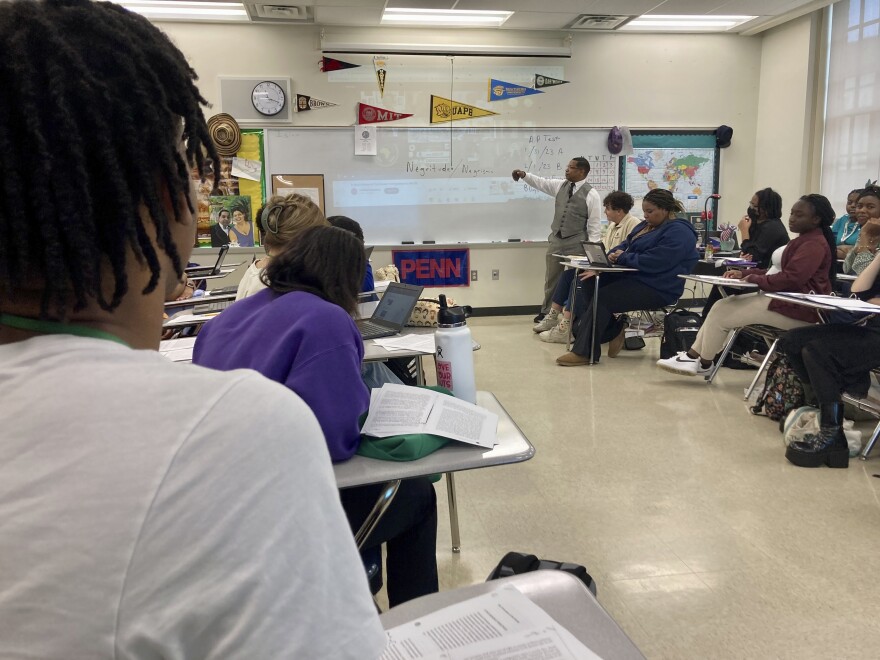The College Board says changes will be made to its new AP African American studies course, after critics said the agency bowed to political pressure and removed several topics from the framework, including Black Lives Matter, slavery reparations and queer life.
In a statement on Monday, the College Board said the development committee and experts charged with authoring the Advanced Placement course “will determine the details of those changes over the next few months.”
“We are committed to providing an unflinching encounter with the facts and evidence of African American history and culture,” the company said.
It remains unclear what the changes are or when they will be made public.
The course gained national attention this winter when Florida Gov. Ron DeSantis, a possible Republican presidential candidate in 2024, said he would ban the course in his state because it pushed a political agenda.
“In the state of Florida, our education standards not only don’t prevent, but they require teaching Black history, all the important things. That’s part of our core curriculum,” DeSantis previously said. “We want education and not indoctrination.”
But the official curriculum for the course, released after DeSantis' administration rejected it, downplayed some components that had drawn objections from the governor and other conservatives. The College Board faced an onslaught of criticism from activists and African American scholars outraged at the notion the course changed because of political controversy.
The course was launched in 60 schools in the U.S. and will be expanded to 800 schools and 16,000 students this upcoming school year.
The nonprofit testing company previously said revisions to the course were substantially complete and not shaped by political influence before DeSantis shared his objections. College Board officials said developers consulted with professors from more than 200 colleges, including several historically Black institutions, and took input from teachers piloting the class.
The company said Monday the creation of the course had prioritized access to a discipline that is not widely available to high schoolers, plus bringing that content to as many students as possible — a possible reference to students in states run by conservatives. “Regrettably,” the nonprofit testing company said, those two goals “came into conflict.”
The College Board offers AP courses across the academic spectrum, including in math, science, social studies, foreign languages and fine arts. The courses are optional and taught at a college level. Students who score high enough on the final exam usually earn course credit at their university.



